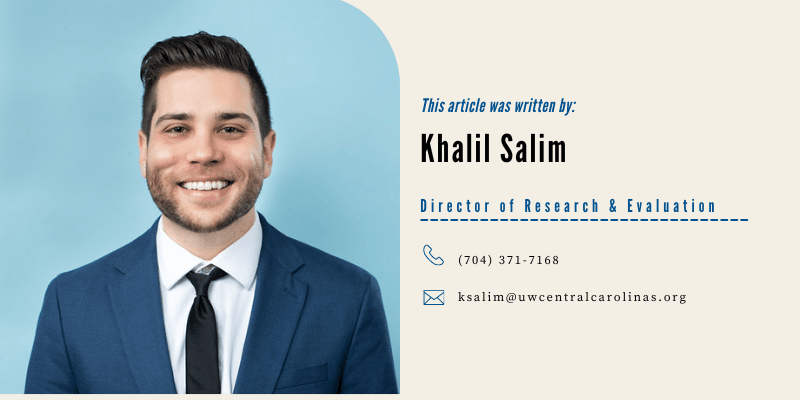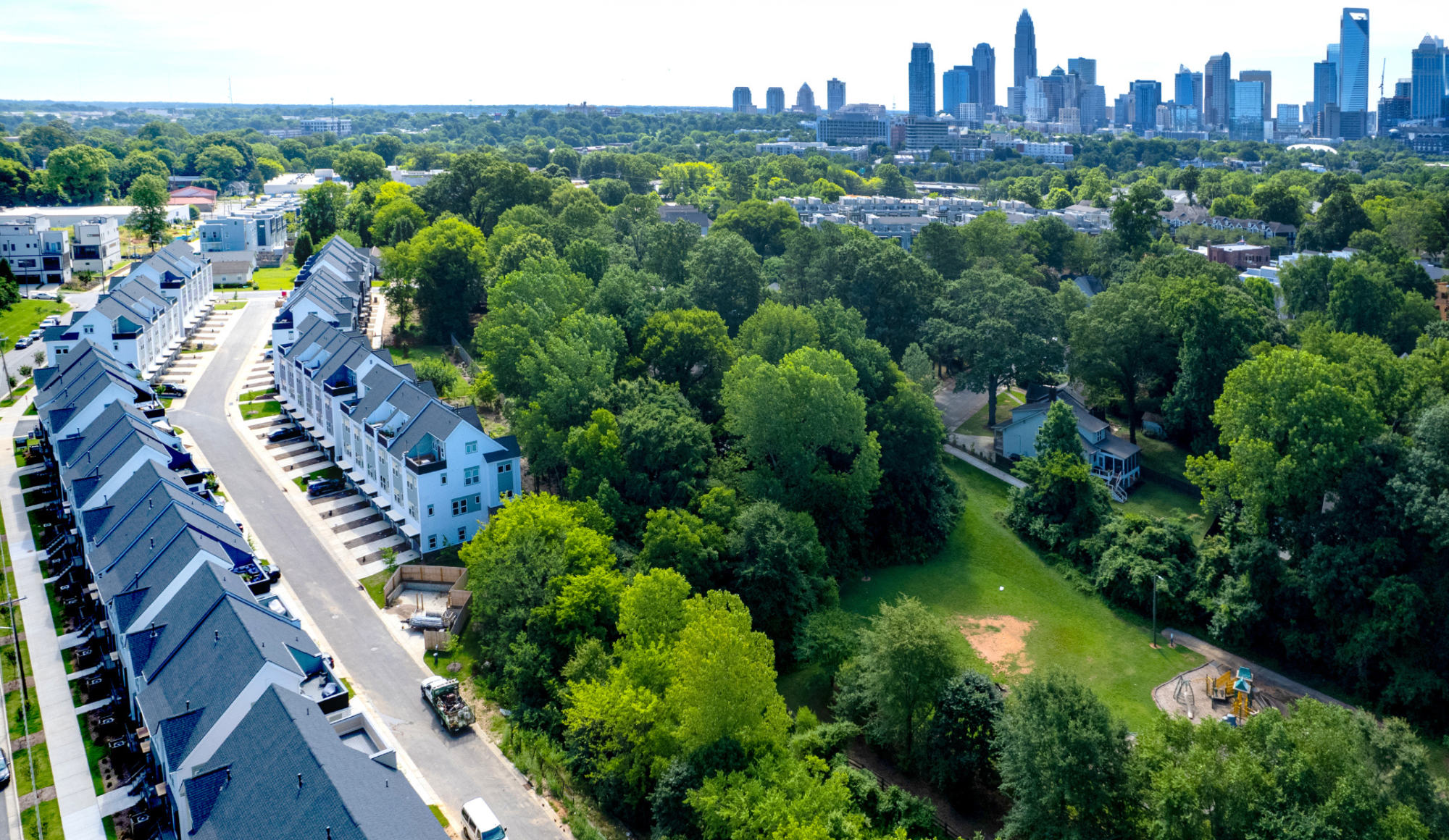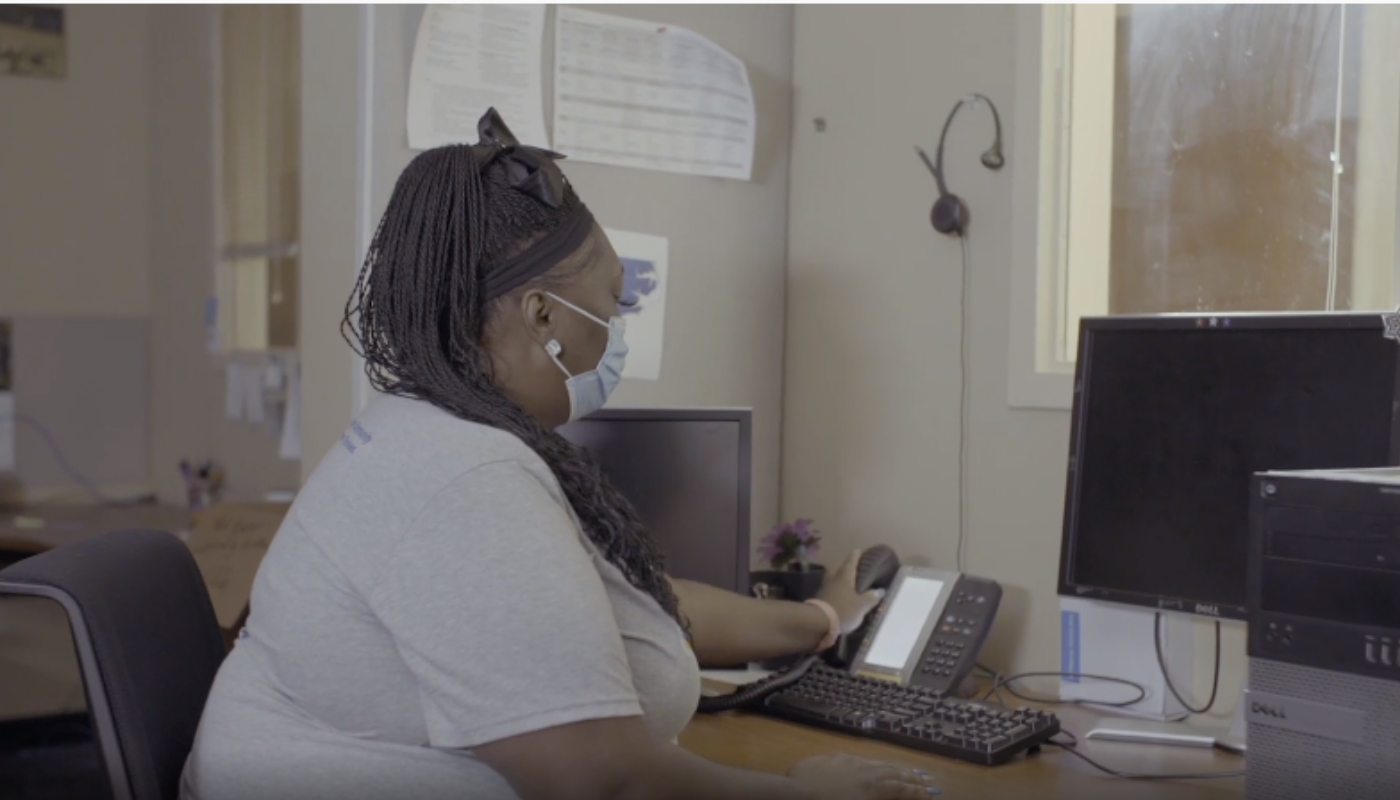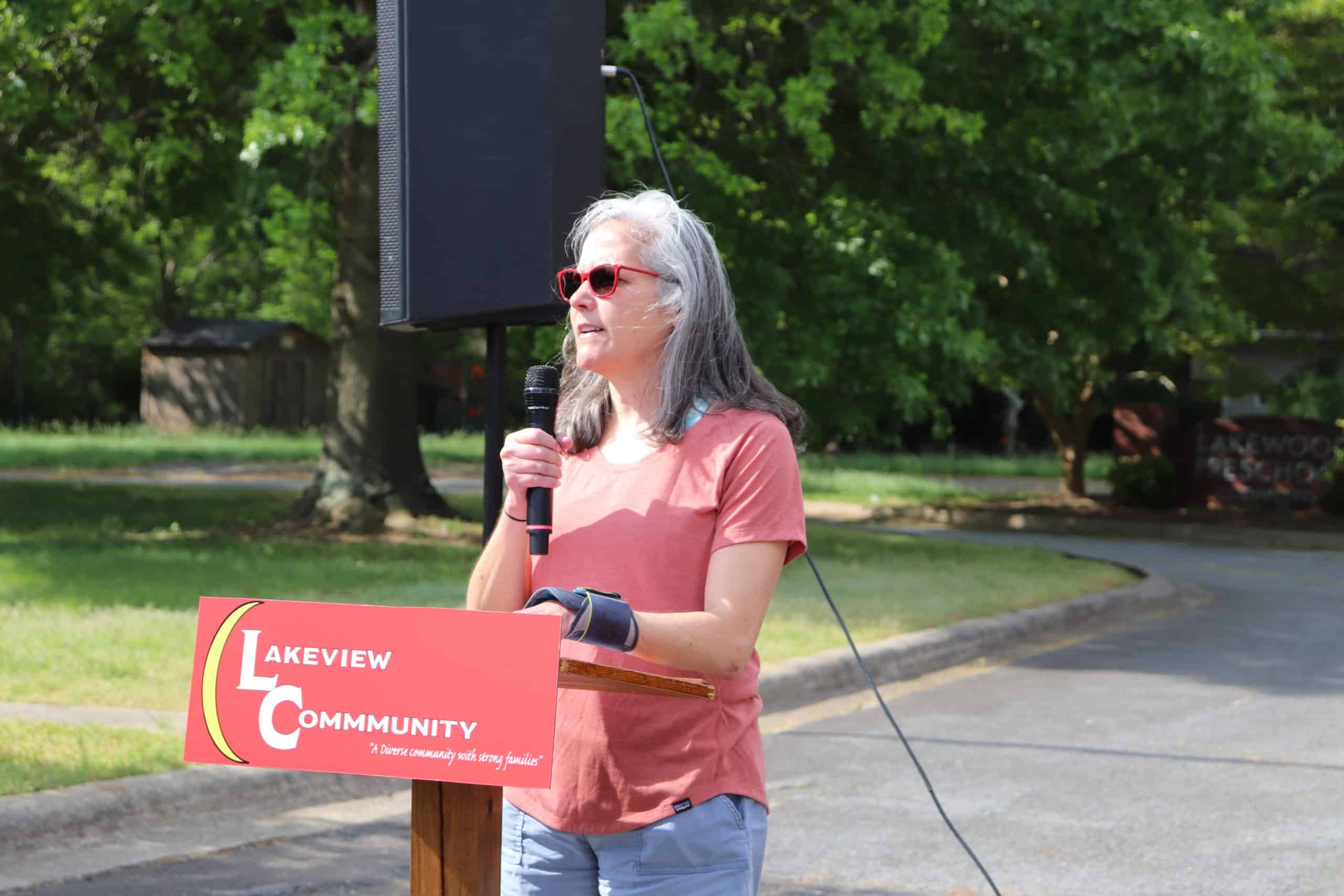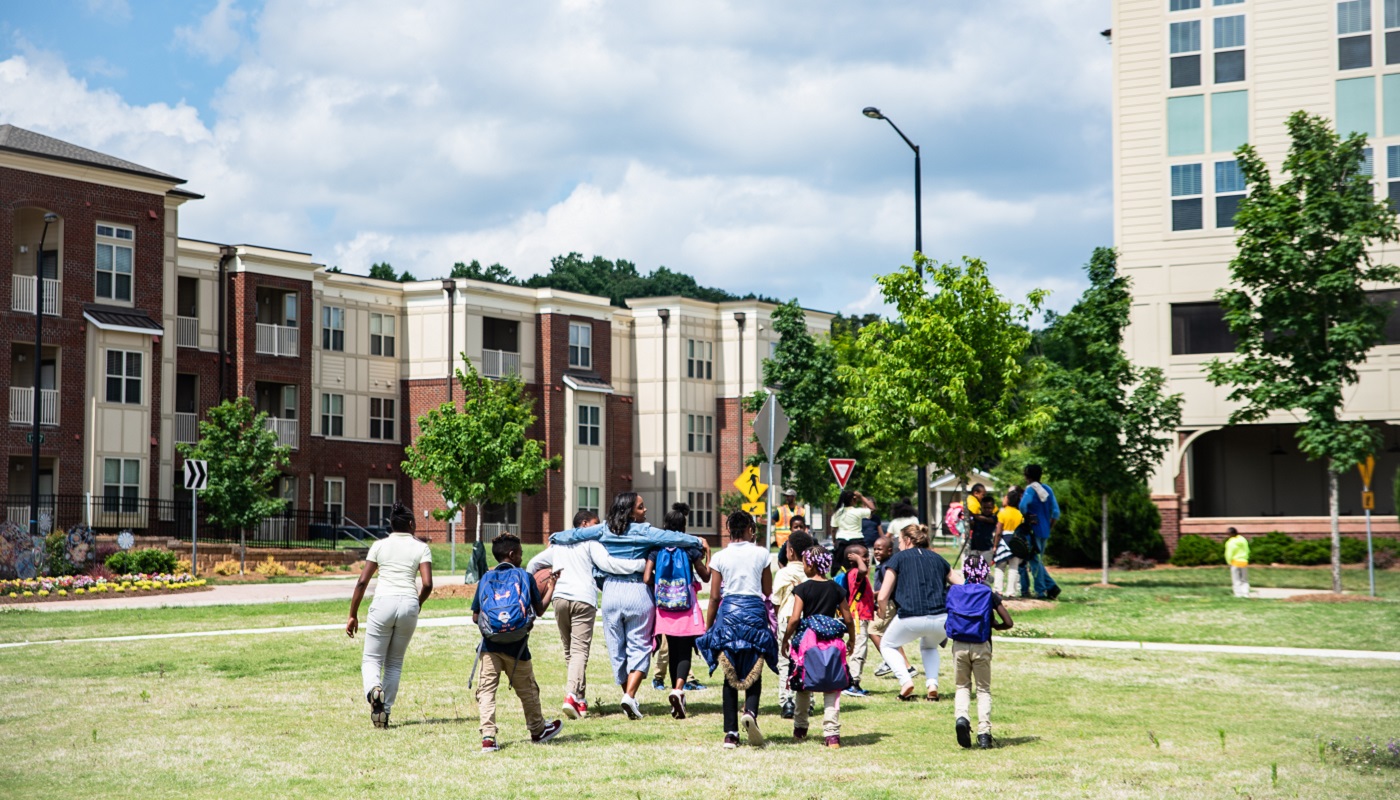
Improving Economic Mobility in Charlotte
The American Dream is the idea that everyone in the United States has the same opportunity for success in life. However, that is not the case for many American families; it is even less true for many children growing up in Charlotte.
The City of Charlotte ranks 50th out of 50 among the largest U.S. cities in economic mobility (Chetty et al., 2014; Opportunity Insights, 2020). This means that a child born in poverty in Charlotte has a very small chance of climbing out of it in his or her lifetime. United Way of Central Carolinas is focused on advancing economic mobility because all too often, access to economic opportunity in our region aligns with the zip code or neighborhood in which one lives.
In order to have a real impact, our strategy is long-term. We are focused on achieving economic mobility through grassroots, community-centered and place-based investments that are rooted in equity, led by residents and focused on the social determinants of health (SDOH).
The Social Determinants of Health refer to the conditions in which people live, learn, work and play that affect a wide range of health and well-being outcomes. The SDOH includes five areas: economic stability, education access and quality, health access and quality, built environment and community and social context. Each of these are interconnected.
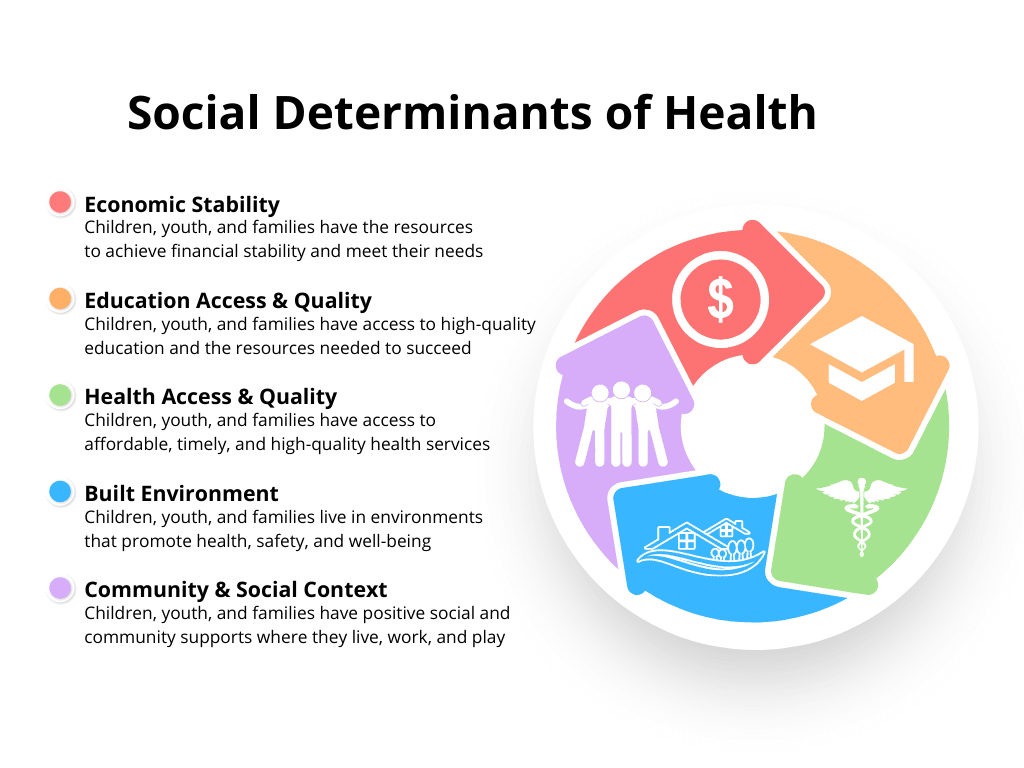
For example, people born into poverty often lack economic stability due to underemployment and/or lack of income. At the same time, individuals experiencing poverty are more likely to face barriers accessing quality health care, housing and schools, leading to unfair disadvantages in their overall wellbeing. Economic mobility cannot be solved in isolation – it is complex and is influenced by many factors related to the SDOH. However, by targeting low economic mobility neighborhoods with a SDOH lens, we have a better chance of making a difference.
Our work is focused on neighborhoods because historical policies such as residential segregation, redlining and urban renewal have led to sharp divides in U.S. neighborhoods (Valentine, 2020; Burrowes, 2021). To make matters worse, potential solutions are often imposed on residents living in these neighborhoods, with little input from those that are directly affected.
At United Way, we are working to break that cycle by working directly with residents of neighborhoods to ensure that resources and community solutions reflect their voices, lived experiences and priorities.
While many of the neighborhoods we work in have similarities, each of them have their own unique history, culture and residents. For that reason, each community sets their own vision, priorities, goals and outcomes they would like to work towards. Based on that vision, the community invites nonprofit partners to help them achieve it.
The nonprofits that residents invite to work in their neighborhood all work towards improving outcomes related to the SDOH. Examples include early childhood development, positive youth development, housing stability, food security, employment, financial stability and health and well-being. One of the many agencies that we work with is Renaissance West Community Initiative (RWCI), a nonprofit organization convening partners and resources to break the cycle of intergenerational poverty in West Boulevard’s neighborhoods known as Renaissance and Little Rock. RWCI’s work is already making a difference in some residents’ upward economic mobility. For example, employment rates among participants receiving Life Navigation case management increased from 63% to 71%. Even more, many of those participants’ annual income increased by an average of $20,000.
Although we want to see our communities transform overnight, we know that the negative effects from decades of disinvestment in communities will require decades of targeted investments to reverse them. And while the task ahead is not easy, we are confident that when strategies and investments reflect the residents’ voices, lived experiences and priorities, and are combined with evidence-based practices from our nonprofit partners, we are one step closer to creating a future in which a child’s zip code or neighborhood does not determine their opportunity for achieving the American Dream.
Khalil Salim is the Director of Research and Evaluation at United Way of Central Carolinas.
Suggested next article: The Zip Code Lottery by Jamese Ivy.


